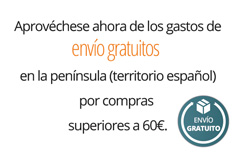.jpg)

No se admite Bono Cultural Joven en compras en la web
Libros
Galego
Xeografía Historia e Arte
Gastronomía e cociña
Ensaio Biografía e Memorias
Dicionarios e gramáticas
Infantil e xuvenil / Plan lector
Album ilustrado cómic e novela gráfica
Poesia e teatro
Outros Temas/ Varios
Narrativa/Ficción Gal
Guías Gal
Libros+ CD Música
Castellano
Poesía y Teatro
Diccionarios y gramáticas
Album ilustrado Comic y Novela Gráfica
Ensayo Biografías y Memorias
Ciencias sociales y humanas
Autoayuda y salud
Sin clasificar
Relatos/Cuentos
Ciencias técnicas
Narrativa/Ficción
Artes
Texto
Infantil Juvenil/ Plan Lector
Economía Empresa y Márketing
Lingüística
Otros temas
Cocina y gastronomía
Divulgación
Otros idiomas
eBooks

 |